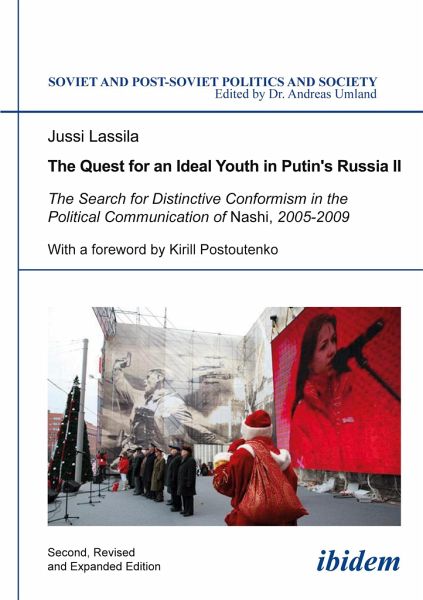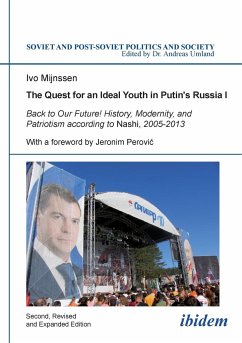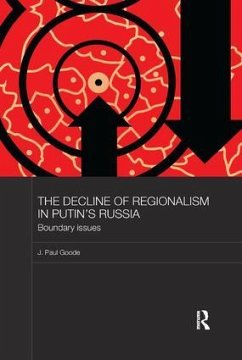
The Quest for an Ideal Youth in Putin's Russia II

PAYBACK Punkte
0 °P sammeln!
The so-called Democratic Antifascist Youth Movement Nashi represents a crucial case of a post-Orange government-organized formation whose values have broad support in Russian society. Yet, at the same time, in view of the movement s public scandals, Nashi was also a phenomenon bringing to the fore public reluctance to accept all implications of Putin s new system. The Russian people s relatively widespread support for his patriotic policies and conservative values has been evident, but this support is not easily extended to political actors aligned to these values. Using discourse analysis, th...
The so-called Democratic Antifascist Youth Movement Nashi represents a crucial case of a post-Orange government-organized formation whose values have broad support in Russian society. Yet, at the same time, in view of the movement s public scandals, Nashi was also a phenomenon bringing to the fore public reluctance to accept all implications of Putin s new system. The Russian people s relatively widespread support for his patriotic policies and conservative values has been evident, but this support is not easily extended to political actors aligned to these values. Using discourse analysis, this book identifies socio-political factors that created obstacles to Nashi s communication strategies. The book understands Nashi as anticipating an ideal youth within the framework of official national identity politics and as an attempt to mobilize largely apolitical youngsters in support of the powers that be. It demonstrates how Nashi s ambivalent societal position was the result of a failed attempt to reconcile incompatible communicative demands of the authoritarian state and apolitical young.













